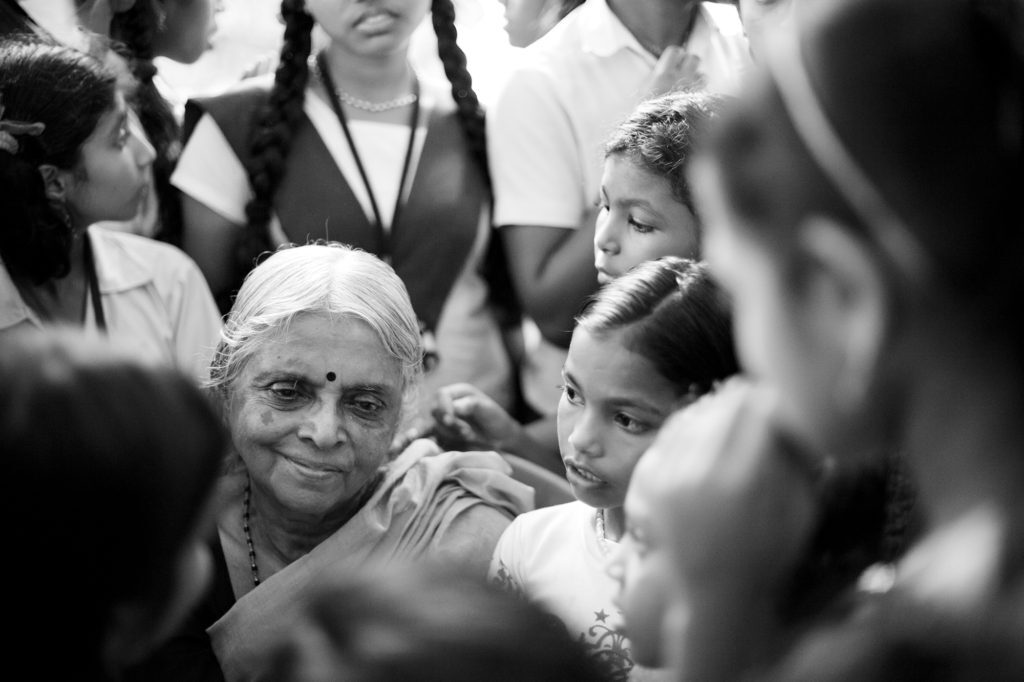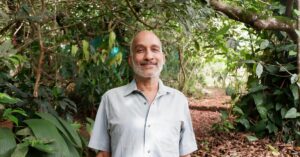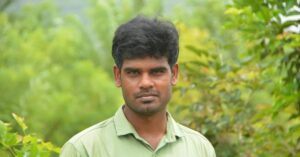This Celebrated Poet Also Saved the Silent Valley & Turned a Barren Hill Green
While Sugathakumari's poems initially began as accounts of a tragic quest for love, her work eventually evolved to incorporate feminist responses to increasing social and environmental injustice and disorder.

In the 1970s, a massive environmental movement was sweeping the nation. The Save Silent Valley campaign was India’s largest environmental debate that decade — a call to save the Silent Valley, one of the last undisturbed tracts of the Southern Western Ghats’ mountain rainforests, from being flooded by an imminent hydroelectric project. The Valley is home to rich endemic biodiversity and a few indigenous communities.
A poem titled Marathinu Stuthi (Ode to a Tree) became a symbol of these protests, and the voice behind it was late Sugathakumari, who led this movement. The poem gained immense significance for the intellectual community, and was played as a prayer/song before the commencement of every campaign meeting. The government finally abandoned the project in 1983, resulting in a sweet and well-deserved victory for the rainforest, the protestors and the poet, who breathed her last on 23 December 2020.
‘Sugatha Teacher’
The contemporary Malayali poet, affectionately called ‘Sugatha Teacher’ by her admirers, was known for her compassion, humility and sincerity, all of which reflected clearly in her literary work. Teacher also led several other environment and feminist movements. She moved between her roles as a poet and a foot soldier fighting for a better world with ease — and eventually, these roles became synonymous.
Sugathakumari was born in 1934 in the temple town of Aranmula, Kerala, to Bodheswaran, an independence activist, Gandhian thinker and poet, and V K Karthiyayini Amma, a well-known scholar and teacher of Sanskrit. She was raised in Thiruvananthapuram.
This upbringing naturally catapulted her into a life of literature and philosophy. Though aware of her poetic prowess, Teacher couldn’t muster the courage to publish under her own name. Instead, she would send her poems to be published under her cousin Sreekumar’s name. Each piece of work earned her six annas, two of which would go to her cousin. This secret was found out when Sreekumar accidentally submitted one poem under both names to the Malayali newspaper Mathrubhumi, and Sugathakumari had to reveal her identity. The then editor, N V Krishna Warrier, pushed for all her subsequent poems to be published under her own name.
From here, Teacher went on to win the Kerala Sahitya Akademi Award for her poem Pathirapookkal (Flowers of Midnight) in 1968, and the Kendra Sahitya Akademi Award for Rathrimazha (Night Rain) in 1978. While her poems initially began as accounts of a tragic quest for love, her work eventually evolved to incorporate feminist responses to increasing social and environmental injustice and disorder.
Moving beyond poetry
Sugathakumari was the first to be called in the midst of any environmental crisis in the state. Apart from the Save Silent Valley Campaign, she, along with a few others, converted a stretch of barren land in Attappady into a natural forest, renaming it — Krishnavanam.
“It was a bare mountain when we decided to make the place green. It was a total of 100 hectares and we availed as assistance Rs 7.5 lakh from CAPART (Council for Advancement of People’s Action of Rural Technology). Now, there is a river in the forest as well as all types of trees and animals. The Adivasis and other activists of voluntary organisations helped us plant the saplings,” Sugathakumari told The New Indian Express.
She also served as the secretary of the Society for Conservation of Nature in Thiruvananthapuram as well as the founding secretary of the Prakrithi Samrakshana Samithi. In addition, she took charge of several feminist movements and organisations, and was the first person to chair the Kerala State Women’s Commission from 1996 to 2001.
Despite undertaking several endeavours, Abhaya, a home she opened in 1985 for the poor and destitute women with mental illnesses, remained closest to Sugathakumari’s heart. Aghast at the state of government mental institutions in Thiruvananthapuram, it was her mission to reach out to raise her voice for suppressed women everywhere.
“Nude and semi-nude women aimlessly walking inside the cells. An elderly woman lying naked on a towel. And their hungry wails and curses. I shut my ears in agony,” she recalled in an interview with Onmanorama. The institute has expanded to house drug addicts, children of socially ostracised women, and also provide skill training to those with mental illnesses and disabilities, in addition to providing legal aid to those in need.
“The most significant achievement of Abhaya was that after 150 years of isolation, mental hospitals of the state were thrown open to public scrutiny,” Abhaya’s website reads.
Sugathakumari was awarded the Padma Shri for her poetry in 2006 and told a reporter that she had seen too much, and was ready to walk away from it all. Nothing, at the time, seemed important to her anymore. But in 2018, when five nuns from the Missionaries of Jesus demanded the arrest of rape-accused Bishop Franco Mulakkal in Ernakulam, Teacher knew her duty was to be with them. She was 84 years old at the time.
“I know how many women are humiliated and assaulted, and how many of them actually end up receiving justice. Most women don’t talk about these incidents publicly, and for every reported case, there are a hundred unreported cases,” she told The News Minute.
‘A champion of social justice’
A year and a half ago, Sugatha Teacher called upon Mathrubhumi to say she had something to exclusively disclose to the newspaper. It was almost as if she’d had a premonition, and told S N Jayaprakash, “I think my time is nearing. I had a second heart attack recently. It was unexpected and came without any signs or symptoms…” she said.
Her last few wishes were to revisit Silent Valley one last time and return to Krishna Vanam. She told Jayaprakash that she wants a banyan tree to be planted behind Abhaya — but nothing should be engraved in it, and her ashes should not be kept there. “Let the birds eat the red fruits of the banyan tree,” she said. She expressed her grief for not having “done justice to her husband and daughter”.
On 23 December 2020, Sugathakumari passed away due to COVID-19-related complications at the government medical college in Thiruvananthapuram. Her age factored in, and she remained critical for several days, unresponsive to medicines. She was 86 years old and is survived by her daughter, Lakshmi Devi.
In her last few days, the octogenarian rarely made public appearances, due to worsening health and age-related conditions.
Gita Aravamudan remembered Sugatha Teacher as a “champion of social justice”. She recalled her chechi’s words at the time of the Save Silent Valley Protest in a recent tribute to The News Minute — “They think we stand in the way of all progress. They think all these big schemes… big hydroelectric projects, tall buildings, hill highways…all these things are marks of progress. We say these are all wounds in the heart of nature. And we have to remember that some wounds never heal.”
Sugatha Teacher led a life away from the shadows of politics and the need for awards and recognition. In her own words, if she could wipe the tears of a helpless child, she was satisfied. Age and weakening health was no bar — she stood for the cause she believed in till the very end, and this is how we will forever remember the legendary poet.
(Edited by Yoshita Rao)
This story made me
- 97
- 121
- 89
- 167
Tell Us More
We bring stories straight from the heart of India, to inspire millions and create a wave of impact. Our positive movement is growing bigger everyday, and we would love for you to join it.
Please contribute whatever you can, every little penny helps our team in bringing you more stories that support dreams and spread hope.



















